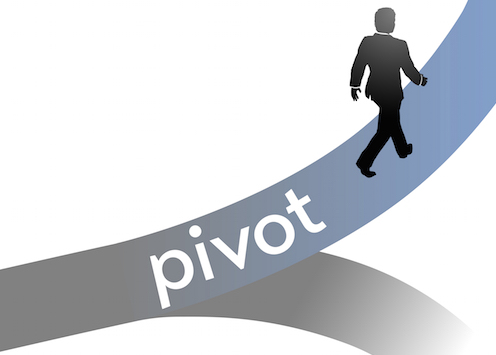
Many entrepreneurs often pivot on their startups, trying out a slew of ideas in order to find out one that sticks and can take off. However, it is not always good to pivot, especially regarding the purpose of the startup. In this post, Adeo Ressi explains why this is so, and how entrepreneurs can decide whether to pivot or not.
Adeo Ressi is the co-founder and CEO of TheFunded and The Founder Institute.
The article "Too Many Founders "Pivot" on the Purpose of Their Startup" originally appeared on Adeo's LinkedIn. It has been republished below with permission. The Lean Startup movement has inarguably changed the global startup landscape over the last few years, providing a simple methodology for resource and time-constrained companies to quickly learn from their customers, iterate their product development, and ultimately create products that people want.
However, in practice, some teachings of the lean startup are easily misinterpreted, leading many startup founders to "pivot" too quickly, too drastically, or without proper validation (or invalidation).
As Eric Ries states, "a pivot is a change in strategy, not vision." Unfortunately, this is definitely not how I see the lean startup practiced by many founders across the globe today...

Recently, we interviewed several Founder Institute Graduate companies that were dead or hibernating, and a common theme we identified with these founders was a lack of passion for the problem their product was solving. These founders had either (1) pursued solving a problem they were not passionate about from the beginning, or (2) pivoted so many times that before they knew it, they were building a product that didn't fit their original vision for the company.
So how do you solve this problem? How can you ensure that a Founder has passion and a strong vision for their company, but can also properly interpret the data and feedback they're receiving to correctly make the decision to pivot or persevere?
In my experience at the Founder Institute, the best way to do this is to ensure two things in the early stages of any company:
- The Founder needs to be properly testing their riskiest assumptions, with well designed and executed tests.
- The Founder needs to have a GREAT answer to the question, "why are you building this company?"
I recently wrote an article in Forbes on the "why are you building this company" question, because it is my favorite question to ask an early-stage entrepreneur. As I like to say, if you don’t have a good reason ‘why’ you are building a company, you will never have a good “what.”

For a Founder to have a GREAT answer to this question, their "why" needs to be formed from the intersection of a customer problem and their personal strengths and passions. If a Founder can’t align these elements, then their business does not have a high chance of succeeding.
In the end, a founder needs to conduct effective tests, and balance feedback from customers with their original passion and vision for the business. A "pivot" should not change your vision for the company, and in many cases, it is, in fact, better to "persevere" than to "pivot".
At the last Startup Festival in Montreal (a GREAT conference BTW), I gave a keynote on the topic, which you can watch below:
P.S. If you are passionate about helping founders build enduring companies that are aligned with their passion and vision, then please join us at the Founder Institute as a Local Leader: http://fi.co/lead.



